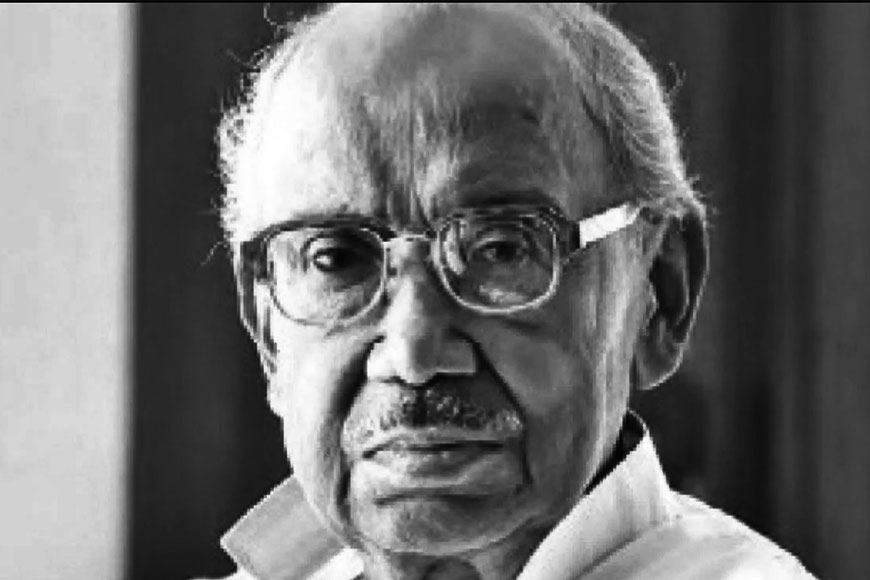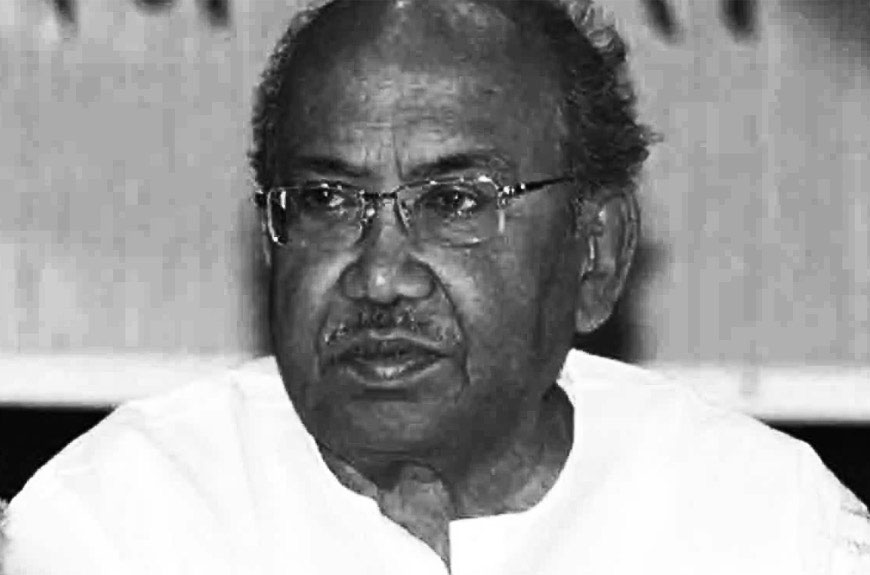Tarun Majumdar: The versatile genius we couldn’t find a label for

Which was the first Tarun Majumdar film you ever watched? For Bengalis of my generation, growing up in the 1980s, the answer is most likely to be Dadar Kirti (1980), which remains one of the defining romantic comedies of Bengali cinema. Just two years earlier, however, Majumdar had come up with the dark, edgy Ganadevata, a gripping, disturbing narrative of socio-economic change sweeping across rural Bengal.
Therein lies the mastery of Tarun Majumdar, who passed away in Kolkata today of age-related ailments at 92. His last released films, both in 2018, were a docu-feature titled Adhikar, and a romantic drama titled Bhalobashar Bari, representing a comeback from a decade-long hiatus.
Adhikar is a documentation of the immense hardships faced by workers in India’s vast unorganised sector, the invisible majority whose story is almost never told. As research, Majumdar toured the length and breadth of Bengal, speaking to the people who were the subjects of his film. That one of Bengali cinema’s most successful filmmakers chose to take on a project such as this at the age of 88 speaks volumes not just of his dedication, but also his depth.
In an interview before the release of Adhikar, he had said, “I do not blame the audiences for seeing these (current) films. They are left with no choice. Earlier, movies were based on literature. They addressed human issues, studied nature and society.
Curiously, ‘depth’ is not a word one would normally associate with Majumdar. At least, no serious film critic has. Audiences, too, would probably remember Shriman Prithviraj (1973), Balika Badhu (1976), Dadar Kirti, or Bhalobasha Bhalobasha (1985) more than Kancher Swarga (1962), Palatak (1963), Thagini (1974), or Ganadevata. Somehow, nobody has ever really talked about how versatile Majumdar was as a filmmaker, or how he varied his craft according to his subject.
Having begun his career as part of the directors’ collective called Yatrik along with Sachin Mukherjee and Dilip Mukherji, Majumdar made his solo debut with Alor Pipasa (1965), the tragic story of a prostitute who hides her identity to keep her child safe, and eventually sacrifices her life for him. The very same year, he also released the comedy Ektuku Basa, and two years later came the smash hit Balika Badhu. Obviously, Majumdar was already showing signs of the versatile genius that he was, because in 1969, he switched to Bollywood for the Hindi film Rahgir, a romantic social drama which many still consider leading man Biswajeet’s finest performance.

Back in Bengal, he released two films in 1971, belonging to entirely different genres. One was Nimantran, the poignant story of a couple separated by social pressures whose love for each other persists throughout their lives, and who teeter on the verge of adultery when their paths cross again. The other was Kuheli, an edge-of-the-seat suspense thriller with plenty of spooky elements thrown in.
Without labouring the point, let us just say that Majumdar’s filmography is full of such examples, because his versatility was matched only by his prolific output. If we confine him to the ‘light, frothy, romantic’ genre, we choose to forget that he received four National Awards, seven Bengal Film Journalists’ Association (BFJA) Awards, five Filmfare Awards and an Anandalok Award. Or that the late Soumitra Chatterjee more than once declared that one of his best roles was that of the thief Aghor in Sansar Simante (1975), a film that proved beyond doubt Majumdar’s masterful ability to handle mature, sensitive themes.
Along the way, he also demonstrated an unerring eye for spotting new talent, becoming the man who introduced such names as Moushumi Chatterjee, Mahua Roychoudhury, Ayan Banerjee and Tapas Paul to the silver screen. Not only did he know what cast he wanted, he knew exactly what his audiences wanted. Rarely has a filmmaker displayed such an acute understanding of the public pulse, or such an uncomplicated ability to tell a story.
The bottom line is, Majumdar quite effortlessly realised every filmmaker’s dream: the perfect mix of critical and commercial success. His personal favourite reportedly was Fuleswari (1974), a romantic drama starring his wife Sandhya Roy, herself an A-list actress of her times, and Samit Bhanja, about a young couple whose carefree romance is clouded by a putative crime. Audiences flocked to watch it, just as they flocked to Apan Amar Apan (1990) or Alo (2003). Clearly, time failed to rob him of his touch.
Adhikar is a documentation of the immense hardships faced by workers in India’s vast unorganised sector, the invisible majority whose story is almost never told. As research, Majumdar toured the length and breadth of Bengal, speaking to the people who were the subjects of his film.
In his twilight years, however, the master had lost faith in Bengali commercial cinema. In an interview before the release of Adhikar, he had said, “I do not blame the audiences for seeing these (current) films. They are left with no choice. Earlier, movies were based on literature. They addressed human issues, studied nature and society. If another Satyajit Ray wants to make Pather Panchali or another Ritwik Ghatak wants to make Nagarik, they will not be able to do so. The golden days of Bengali cinema are gone.”
Perhaps it is as well that ‘Tarun babu’ has exited this particular stage. A genius of his calibre is not made to languish in obscurity. As the largely negative critical response to Bhalobashar Bari shows, his life’s work was probably done.










